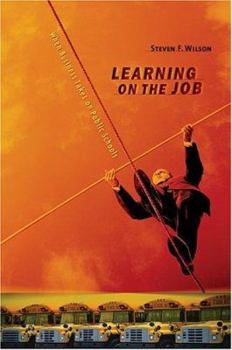Learning on the Job: When Business Takes on Public Schools
Entrepreneurial creativity, private investment, and competition have beenamong America's great strengths. Can they be harnessed to improvetroubled public schools? Or is private management of public schools atbest a gimmick, and at worst an undemocratic sell-out? In the 1990s, some failing school systems turned to private education managementorganisations to manage their schools. The EMOs promised academicimprovement to families and profits to their...
Format:Hardcover
Language:English
ISBN:0674019466
ISBN13:9780674019461
Release Date:January 2006
Publisher:Harvard University Press
Length:425 Pages
Weight:1.45 lbs.
Dimensions:1.4" x 5.9" x 8.6"
Customer Reviews
2 ratings
Learning how to create excellent schools
Published by Thriftbooks.com User , 15 years ago
Learning on the Job tracks the pioneers of the K-12 school management industry. Readers get solid information about the business plans, academic design, and the resulting school implementations of each of seven education management organizations. Future entrepreneurs in this arena will benefit from the road posts to follow and obstacles to avoid as Wilson offers in his conclusions.
Definitive book on business efforts to reform public schools
Published by Thriftbooks.com User , 17 years ago
This book describes the experience of a small but important section of the education reform movement: the Education Management Organizations or EMOs. EMOs are organizations which manage more than one charter school. The book focuses upon seven organizations, the six for-profit EMOS (Edison, Chancellor Beacon, National Heritage Academies and so on) and the one not-for-profit EMO, KIPP (Knowledge is Power Program). Wilson was one of the founders of one of these EMOs, Advantage. This is not, however, an auto-biography, either of Wilson or of Advantage. It is not at all revealing of Wilson's personal life, personal feelings or personal experiences. Rather, it is an effort to systematically and dispassionately examine every aspect of the experience of the EMOs so far. On its own terms, the book is a model of how to write a book of this sort. Wilson is a very careful scholar, who has done his homework. He starts with a very good Introduction, giving an overview of the state of American public education. He then gives a brief description of each of the EMOs. This is very useful. Most of us have not heard about these organizations, in any detail, and they are worth knowing about. He then goes through each aspect of their experience, in some detail. Much of the story that he tells is horrifying. It is very difficult to run an EMO. The barriers to succeeding with a charter school are greater than one might imagine. Anyone who is thinking about starting a charter school should read this book; it provides a road map of the obstacles to be avoided. On the whole, his assessment of the EMO movement is positive. He feels that they started out, with too much self-confidence and too little knowledge, and that they got kicked around a good deal by the difficulties of the task, particularly the truly astonishing venom of the politics in this area. The supporters of the status quo in education will go to extraordinary lengths to torpedo any plausible-looking alternative to the current arrangement, and they loath and fear organizations such as Edison. Despite all of this, Wilson feels that the EMOs did a good job of raising the performance of some of our worst-performing schools, and that their experience teaches a good deal about education reform. This book should be read by anyone interested in education reform.






